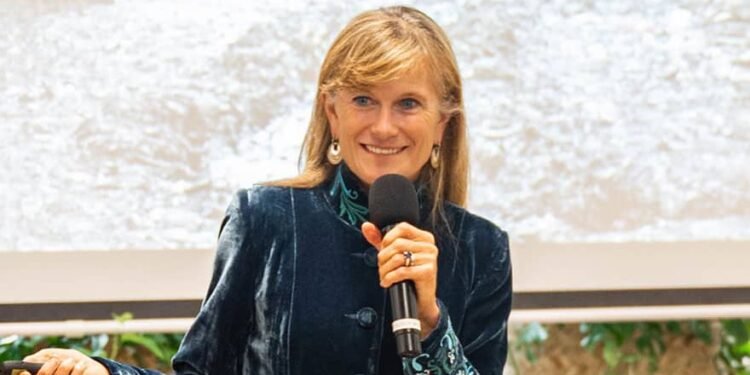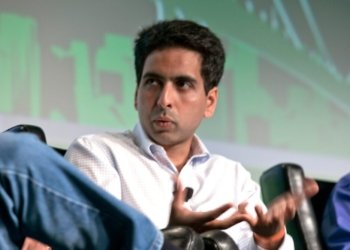What if the most powerful tool against global poverty isn’t charity, but smart business investment? This provocative question lies at the heart of Jacqueline Novogratz‘s revolutionary approach to social change.
As the founder and CEO of Acumen, Novogratz pioneered a new model for tackling poverty. Instead of traditional aid, her organization uses patient capital to invest in businesses serving low-income communities.
Since 2001, Acumen’s innovative approach has reached over 700 million people across four continents. The organization supports enterprises that provide essential services like healthcare, education, and clean energy.
This article explores how Novogratz built Acumen into a global force in social entrepreneurship. We’ll examine her background, literary works, numerous awards, and ongoing initiatives shaping the future of social enterprise.
Key Takeaways
- Jacqueline Novogratz founded Acumen to combat poverty through business solutions
- Acumen uses patient capital instead of traditional charity models
- The organization has impacted over 700 million people worldwide
- Investments focus on essential services in low-income communities
- Novogratz’s approach has revolutionized social entrepreneurship
- Her work spans multiple continents including Africa and South Asia
- Acumen represents a sustainable model for creating social change
Who Is Jacqueline Novogratz: Pioneering Social Entrepreneur
Behind every revolutionary idea stands a person with unique experiences that shape their vision. This pioneering social entrepreneur’s journey began with a solid educational foundation and transformative early career experiences.
Early Life and Education
Born in 1961 in the United States, she attended Fort Hunt High School before pursuing higher education. Her academic journey led her to the University of Virginia, where she earned degrees in economics and international relations.
This educational background provided crucial insights into global economic systems. She later enhanced her business acumen at Stanford Graduate School of Business, earning an MBA.
These formative years built the framework for her innovative approach to social change. The combination of economic theory and international perspective proved invaluable.
Formative Career Experiences
Her professional journey started conventionally at Chase Manhattan Bank in 1983. As an international credit analyst, she gained firsthand banking experience.
This traditional finance role soon evolved into something more meaningful. A significant shift occurred when she began working in Africa as a consultant.
She collaborated with organizations like the World Bank and UNICEF during this period. These experiences exposed her to different approaches to economic development.
In Rwanda, she co-founded Duterimbere, the country’s first microfinance institution. This hands-on experience demonstrated how financial tools could empower communities.
These early career moments fundamentally shaped her perspective on social enterprise. They revealed how business principles could drive meaningful change in low-income areas.
The transition from traditional banking to social impact work proved crucial. It laid the groundwork for her future initiatives and innovative strategies against poverty.
The Founding Vision Behind Acumen
Traditional banking models often fail to address systemic poverty, creating the need for innovative financial approaches. This realization sparked a movement that would redefine how we combat global inequality through business solutions.
From Traditional Banking to Impact Investing
Jacqueline Novogratz‘s African experiences revealed the limitations of conventional finance. She saw how microfinance could empower communities but recognized the need for larger-scale solutions.
Her work at the Rockefeller Foundation proved transformative. There, she founded and directed The Philanthropy Workshop and The Next Generation Leadership programs.
These initiatives explored new approaches to social change. They combined business discipline with humanitarian goals, testing what would become Acumen’s core philosophy.
This period allowed her to develop the patient capital concept. It emerged from seeing how traditional aid often created dependency rather than sustainable solutions.
Acumen’s Patient Capital Approach
Patient capital represents a revolutionary investment strategy. It involves long-term funding that prioritizes social impact over quick financial returns.
This approach targets businesses serving low-income communities. These enterprises provide essential services like healthcare, education, and clean energy.
Unlike traditional philanthropy, patient capital expects returns. However, it offers flexible timelines and understands that social change takes years, not quarters.
Since 2001, this model has demonstrated remarkable effectiveness. Acumen’s investments have reached over 648 million people across multiple continents.
The organization’s founding vision combines entrepreneurial rigor with human dignity. It treats low-income individuals as customers rather than charity cases.
This philosophy sets Acumen apart from traditional aid models. It creates sustainable change through market-based solutions that respect people’s agency and potential.
Acumen’s Global Impact and Investment Strategy
How does an organization measure real change when working with the world’s most vulnerable communities? The answer lies in a carefully crafted strategy that balances financial discipline with deep social commitment.
Geographic Reach and Sector Focus
Acumen’s investments span four key regions where poverty remains widespread. The organization focuses on Africa, South Asia, Latin America, and the United States.
These areas represent communities with the greatest need for essential services. Each region receives tailored investments based on local challenges and opportunities.
The investment strategy targets four critical sectors: healthcare, education, energy, and agriculture. These areas address fundamental human needs while creating economic opportunities.
Healthcare investments include affordable clinics and medical technologies. Education initiatives focus on skills training and accessible learning platforms.
Energy projects bring solar power and clean cooking solutions to off-grid communities. Agricultural investments improve farming techniques and market access for smallholder farmers.
Measuring Success Beyond Financial Returns
Acumen tracks impact through both numbers and human stories. The organization has invested $137 million across 139 companies worldwide.
These investments have reached over 263 million people with essential services. But the true measure goes beyond these impressive statistics.
Success appears in improved access to healthcare for remote villages. It shows in children studying under solar lights instead of kerosene lamps.
Farmers earn better incomes through improved agricultural techniques. Families gain dignity through reliable, affordable services.
This holistic approach balances financial sustainability with life-changing impact. It proves that business principles can drive meaningful social transformation.
The strategy creates lasting change rather than temporary solutions. It represents a new model for addressing global poverty through market-based approaches.
Literary Contributions: The Blue Sweater and Moral Revolution
The written word has proven to be another powerful tool in Jacqueline Novogratz’s arsenal for social change. Her two influential books have inspired a generation of ethical entrepreneurs seeking to make a difference.
These publications blend personal narrative with practical wisdom. They offer insights into both the emotional and strategic dimensions of creating impact.
The Blue Sweater: A Personal Journey Memoir
The Blue Sweater emerged in 2009 as a powerful memoir of transformation. It chronicles the author’s shift from traditional banking to social entrepreneurship.
A poignant moment in Rwanda inspired the book’s title and theme. She encountered a young boy wearing a sweater she had donated years earlier.
This unexpected connection symbolized global interdependence. It highlighted how our actions ripple across continents and communities.
The narrative explores bridging economic divides through empathy and innovation. It argues for understanding poverty through human connection rather than statistics.
Readers journey through her professional evolution across continents. The book reveals how personal experiences shaped her approach to social enterprise.
Manifesto for a Moral Revolution: Principles for Change
Published in 2020, this work offers a framework for ethical leadership in complex times. It provides practical guidance for creating systemic change in an interconnected world.
The manifesto outlines practices for building a better world through moral courage. It emphasizes dignity, imagination, and concrete action steps.
This book reflects decades of experience in social entrepreneurship. It distills lessons from working with communities across the globe.
Principles include listening to marginalized voices and redefining success. The approach combines business acumen with deep humanitarian values.
These literary works continue to inspire new generations of change-makers. They complement her work at Acumen by providing philosophical foundation and practical tools.
Both books have become essential reading in business schools worldwide. They help shape how future leaders approach social innovation and ethical enterprise.
Recognition and Awards: Celebrating Leadership in Social Entrepreneurship
True innovation rarely goes unnoticed. When a leader pioneers new approaches to global challenges, the world takes notice through meaningful recognition.
This visionary’s work has earned prestigious honors from major publications and institutions. These awards validate her innovative approach to solving poverty through business solutions.
Forbes Honors and Global Thinker Recognition
In 2017, Forbes named her among the 100 Greatest Living Business Minds. This honor placed her alongside other transformative leaders shaping global commerce.
The previous year brought the Forbes 400 Lifetime Achievement Award for Social Entrepreneurship. This recognition celebrated her decades of work building sustainable solutions.
Earlier accolades included Foreign Policy’s Top 100 Global Thinkers in 2009. The Daily Beast also named her among the 25 Smartest People of the Decade that same year.
These honors highlight both her intellectual contributions and practical innovations. They acknowledge how her ideas have reshaped approaches to economic development.
Lifetime Achievement in Social Entrepreneurship
Academic institutions have conferred honorary doctorates recognizing her impact on education and social change. The University of Toronto and Fordham University are among those granting these honors.
These degrees acknowledge her influence beyond immediate business results. They celebrate how her work has inspired new generations of social entrepreneurs.
The awards collectively validate patient capital as a powerful tool against poverty. They demonstrate growing recognition for market-based approaches to social challenges.
This recognition helps elevate the entire field of social entrepreneurship. It encourages more investors and entrepreneurs to pursue purpose-driven business models.
These honors reflect not just individual achievement but movement building. They signal broader acceptance of innovative approaches to creating lasting change.
COVID-19 Response and Recent Initiatives
Global crises demand innovative responses that maintain momentum toward social change. When the pandemic struck, Acumen demonstrated remarkable agility in supporting entrepreneurs serving vulnerable communities.
Pandemic Emergency Funding for Entrepreneurs
The organization quickly mobilized $7 million in emergency funding. This support reached entrepreneurs across nearly 20 countries during the crisis.
Funding focused on four critical sectors: healthcare, financial inclusion, energy, and workforce development. These areas were most affected by pandemic disruptions.
Portfolio companies received crucial capital to maintain operations. This allowed them to continue serving low-income communities throughout the lockdowns.
Healthcare enterprises could adapt services to meet new safety protocols. Energy companies maintained off-grid power solutions for remote villages.
Financial inclusion initiatives helped communities access digital payment systems. Workforce development programs shifted to online training formats.
This rapid response demonstrated the flexibility of the patient capital model. It proved that impact investing could adapt to unprecedented global challenges.
Climate Finance and Energy Access Initiatives
Beyond pandemic response, Acumen has launched ambitious climate finance programs. These initiatives address both energy poverty and environmental sustainability.
A $250 million facility brings electricity to Africa’s poorest countries. This off-grid solar project aims to reach 72 million people without reliable power.
Another $300 million commitment supports climate adaptation for smallholder farmers. This addresses food security and resilience in developing nations.
These efforts align with the vision of using entrepreneurial solutions for global issues. They demonstrate how market-based approaches can tackle both poverty and climate change.
The initiatives represent a natural evolution of the patient capital model. They show how impact investing can address increasingly complex global challenges.
Through these programs, Acumen continues to pioneer innovative financial solutions. The organization remains committed to creating lasting change in vulnerable communities worldwide.
Conclusion: Jacqueline Novogratz’s Enduring Legacy
Redefining capitalism to serve humanity’s most pressing needs represents a lasting contribution to economic justice. Jacqueline Novogratz‘s vision through Acumen has transformed how we address poverty.
Her patient capital model reached over 700 million people with essential services. This approach proves business can drive meaningful social change.
Literary works like “Moral Revolution” inspire ethical leadership worldwide. These books provide frameworks for systemic change and moral courage.
Prestigious recognitions, including lifetime achievement awards, cement her status. Recent initiatives in climate finance show ongoing adaptability.
Her legacy offers a blueprint for future changemakers. It demonstrates how markets can prioritize dignity while creating sustainable impact.
FAQ
What is patient capital and how does it work?
Patient capital is a form of long-term investment that bridges the gap between traditional charity and market-based approaches. It provides entrepreneurs in low-income communities with affordable financing and support, allowing them to build sustainable businesses that tackle poverty. Unlike traditional aid, it expects returns but prioritizes social impact over maximizing profits.
How does Acumen measure the success of its investments?
Acumen uses a dual-bottom-line approach, evaluating both financial sustainability and social impact. Success metrics include job creation, increased income for low-income households, improved access to essential services like healthcare and energy, and environmental benefits. They combine quantitative data with qualitative stories to assess real-world change.
What inspired the founding of Acumen?
The founder’s experiences in traditional banking and international development revealed the limitations of both pure charity and profit-only investing. This insight led to creating Acumen in 2001, aiming to use entrepreneurial solutions to address global poverty more effectively and sustainably.
What recognition has the founder received for her work?
She has earned numerous honors, including being named one of the Top 100 Global Thinkers by Foreign Policy, receiving the Forbes 400 Lifetime Achievement Award for Social Entrepreneurship, and recognition as one of the 100 Greatest Living Business Minds. These awards highlight her influence in reshaping how business can drive social change.
How did Acumen respond to the COVID-19 pandemic?
Acumen launched emergency funding initiatives to support entrepreneurs in its portfolio, helping them sustain operations and continue providing essential services during the crisis. This included flexible financing and technical assistance to navigate challenges and maintain impact in vulnerable communities.
What are the key principles outlined in “Manifesto for a Moral Revolution”?
The book advocates for building a better world through practices like starting with humility, listening to voices on the ground, embracing patience, and measuring what truly matters. It calls for a shift in values to prioritize human dignity and systemic change over short-term gains.
What sectors does Acumen focus its investments on?
Acumen invests in critical sectors including renewable energy, agricultural development, healthcare, education, and affordable housing. These areas address fundamental needs and create opportunities for millions of people living in poverty across Africa, Latin America, and South Asia.





